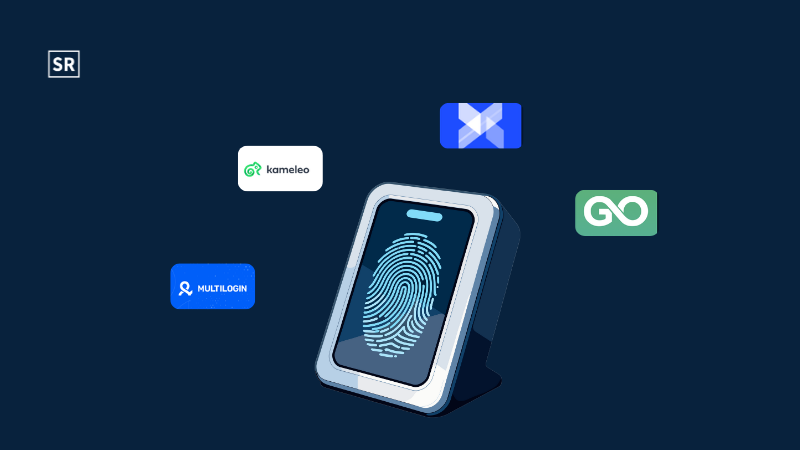Striking the Right Balance: How Much Data Should Startups Gather from Customers?
Oct 16, 2025 | By Team SR

Data collection is a powerful tool for businesses, particularly for startups that are looking to understand their customer base and refine their products or services. In today's digital age, businesses are increasingly leveraging customer data to enhance user experiences, target specific markets, and drive growth. However, it’s crucial for startups to strike the right balance when it comes to the amount of data they collect. Collecting too much data can lead to privacy concerns and regulatory issues, while collecting too little may hinder the ability to fully understand and meet customer needs. So, how much data should startups gather from their customers, and what are the key factors to consider?
Understanding Customer Needs and Business Goals
The first step for any startup is to identify its business objectives and understand how customer data can support these goals. The amount of data collected should be directly tied to what the business needs to accomplish. For example, a startup focusing on improving customer service may want to collect data on customer interactions and feedback. In contrast, a product-based startup might gather data related to purchasing habits, preferences, and behaviours to optimise inventory management or personalise product recommendations.
It’s essential for startups to have a clear idea of why they are collecting data in the first place. Is the goal to improve the customer experience? Understand buying behaviour? Or enhance marketing efforts? Knowing the purpose will help startups determine the exact type of data they need and avoid unnecessary collection. For instance, a company launching a new mobile app may collect data on user behaviours within the app, such as which features are most used, while steering clear of collecting irrelevant data that doesn’t add value to the product or user experience.
Types of Data to Collect
When deciding how much data to collect, startups should focus on gathering only what is necessary to drive their business forward. There are two main categories of data: personal data (like names, email addresses, and payment details) and behavioural data (like browsing habits and purchase history).
RECOMMENDED FOR YOU

Web Design for Startups: 3 Key Things To Consider Before Launching Your Platform
Team SR
Jan 14, 2026
For many businesses, a mix of both is essential. Personal data is important for account creation, payments, and targeted marketing, while behavioural data helps track engagement and refine offerings. However, some businesses don’t need to collect much data at all. In fact, limiting data collection can build trust, as many consumers prefer not to share personal details online.
For instance, news platforms often let users browse without requiring any personal information, which encourages wider engagement. Similarly, some online casinos allow users to explore and play games without identity verification, lowering the barrier for new users. Privacy-minded players often prefer to play at a casino without id verification when wagering online, as these sites allow gamers to access large game libraries while skipping the need to share personal details and documents over the internet. Similarly, E-commerce sites can also let customers shop as guests, skipping the account creation process and minimising data collection.
For startups, collecting less data can be a competitive advantage, as it aligns with growing consumer preferences for privacy and control. This approach can help foster trust and loyalty, allowing businesses to attract and retain customers more easily.
The Legal and Ethical Considerations
With increasing concerns about data privacy and security, startups must be aware of the legal frameworks that govern data collection. Regulations such as the General Data Protection Regulation (GDPR) in the EU and the California Consumer Privacy Act (CCPA) in the US impose strict rules on how businesses collect, store, and manage customer data. These laws are designed to protect consumer privacy and ensure that businesses use data ethically and transparently.
Startups need to understand these regulations and ensure they are in compliance before gathering customer data. This means only collecting data that is necessary for the business’s objectives, storing it securely, and obtaining explicit consent from customers. A privacy policy that clearly explains how customer data will be used, stored, and protected is essential. This not only builds trust with customers but also mitigates the risk of legal consequences from data breaches or misuse.
Additionally, startups should implement robust data security measures to protect customer data from theft or unauthorised access. Whether it’s encrypting sensitive data, using secure payment gateways, or regularly auditing security protocols, safeguarding customer information is crucial for maintaining trust and avoiding potential reputational damage.
Customer Trust and Transparency
Customers are becoming increasingly aware of the importance of their personal data and how it is used. To maintain trust, startups must be transparent about their data collection practices by first writing and then sharing their privacy policy with customers. It’s important to clearly communicate why data is being collected, how it will be used, and what benefits customers will receive in return.
Offering customers the ability to manage their data, such as opting out of certain data collection practices or deleting their information, can further build trust and demonstrate a commitment to transparency. Customers are more likely to engage with businesses that respect their privacy and are upfront about how their data will be used.
Balancing Data Collection with Customer Expectations
Striking the right balance between collecting enough data to be useful and respecting customer privacy is key for startups. While data can provide valuable insights and help businesses grow, startups should not overlook the importance of ethical data practices. Over-collecting or mishandling customer data can damage relationships and lead to customer churn.
As a general rule, startups should focus on collecting the minimum amount of data necessary to achieve their business objectives. This means not only assessing what data is needed but also considering how that data will be used in a way that benefits customers. In many cases, customers are willing to share their data if they understand how it will be used and what value they will receive in return.


 Follow us
Follow us Follow us
Follow us













